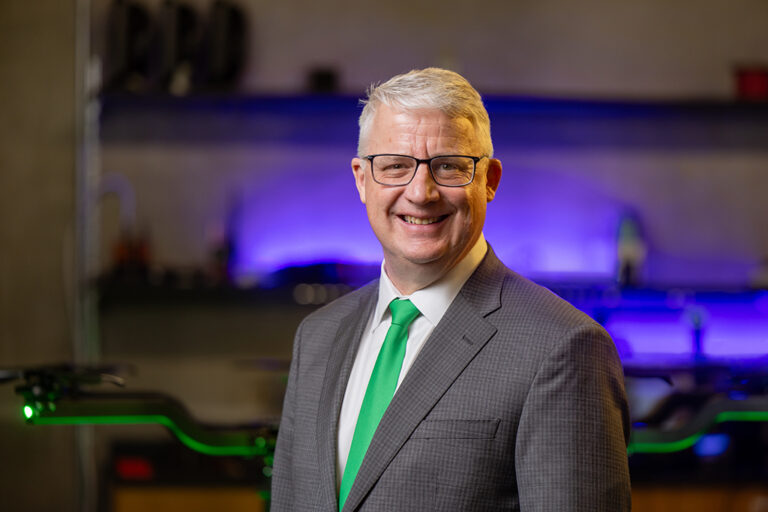More than a gut feeling
UND Post-doc explores possible connection between bacteria in the digestive system and Alzheimer’s disease

Editor’s note: This is a follow-up to a story we wrote in September about UND’s new focus on increasing postdoctoral opportunities as a means to add research capacity. The effort is connected to Goal No. 4 of the One UND Strategic Plan: to enhance discovery at a level consistent with most research-intensive universities (Carnegie R-1). In September, our story highlighted Colin Combs, Chester Fritz Distinguished Professor of Biomedical Sciences, and his post-doc researcher, Harpreet Kaur. With today’s story, we delve a bit deeper into Kaur’s background and what her work could mean for the future of Alzheimer’s research.
Harpreet Kaur arrived at UND in August 2016.
That’s not long ago, but already this young neuroscientist is making waves.
“I got a UND biomedical science grant to explore the positive impact that probiotics and probiotic supplements might have on the onset and progression of Alzheimer’s,” said Kaur, who is from Amritsar in the Indian state of Punjab.
“My mentor Dr. Colin Combs—chair of the UND School of Medicine & Health Sciences Department of Biomedical Sciences—helped me apply for this grant,” she said.
The grant is part of the UND Office of the Vice President for Research & Economic Development’s Post-doctoral Award Program that encourages early-career scientists to explore topics of major interest to the University’s research enterprise.
In Kaur’s case the grant was funded through the 2017 Alzheimer’s Association Research Fellowship—$175,000 over three years—for her research into a disease that impacts more than 14,000 people in North Dakota.
At its core, Kaur’s inquiry into the link between probiotics and Alzheimer’s is to develop the knowledge to help clinicians diagnose the disease earlier with her diet-disease model. What you eat, in other words, and how your diet impacts what’s going on in your gut, could help your doctor figure out whether you have Alzheimer’s.
According to the Alzheimer’s Association, this neurodegenerative disease is the most common form of dementia; it’s a general term for the progressive deterioration of memory and other cognitive abilities. Eventually Alzheimer’s is serious enough to interfere with daily life. It’s estimated that Alzheimer’s disease accounts for up to 80 percent of dementia cases.
Food on the brain
Kaur got interested in a science career when she was in high school in India.
“I took medical science courses in college, and during my master’s program, I did lab experiments with plants, and I got even more fascinated,” said Kaur, who completed a Ph.D. in biochemistry with a focus on neurological disorders. Among other things, she studied how turmeric—the most popular spice in India and a common food ingredient in the U.S.—impacts brain health.
Now her quest into probiotics is about how these foods affect the brain and how, in turn, probiotic-enhanced brain health might impact the onset of Alzheimer’s.
“Probiotics are the so-called good bacteria in your body,” Kaur said. “Your body already has trillions of microorganisms—viruses and bacteria. Yogurt is a probiotic; and probiotics also are available as over-the-counter supplements. Different probiotics have different strains, or kinds, of bacteria.”
“I’m looking at the changing balance of bacteria in the gut,” Kaur said. “We know that ‘bad’ bacteria could be responsible for Alzheimer’s, so modeling the bacteria in gut and seeing if probiotics slow the process.
She’s doing this with mice from a lab in Japan that are specially bred already having Alzheimer’s. Once the breeder mice get to UND, they’re used to produce more of the Alzheimer’s-bearing mice.
“We know that there are differences in microorganisms in diseased animals compared with control (non-diseased) animals,” Kaur said. “Microorganisms in gut do affect what is in the blood stream, and that affects the brain.”


